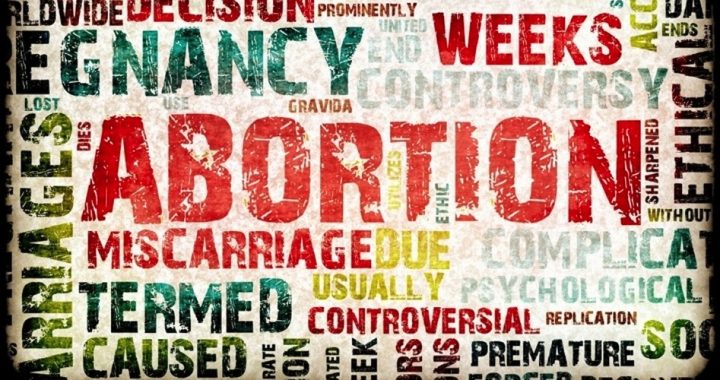
On April 29, Senator Kelly Ayotte (R-N.H.) and 32 other senators sent a letter to their Senate colleagues asking them to call on Senate Majority Leader Harry Reid to bring the Pain-Capable Unborn Child Protection Act (S.1670) up for an immediate floor vote.
S. 1670 is the Senate version of H.R. 1797 (with the same title) passed by the House last June 18. Senator Lindsey Graham (R-S.C.) introduced the bill in the Senate on November 7. The bill was referred to the Senate Judiciary Committee on November 11, but there has been no further action taken since, despite the fact the 40 senators signed on as cosponsors last November.
The bill would ban abortions throughout the United States after 20 weeks (five months) of pregnancy, based on the premise “that there is substantial medical evidence that an unborn child is capable of experiencing pain at least by 20 weeks after fertilization, if not earlier.”
The letter from Ayotte and her 32 colleagues, directed at those senators who have not yet come on board in support of S. 1670, proclaims: “It is time that we in Congress act to bring the United States out of the fringe and closer to international norm on late abortions.” The letter notes that the only other countries in the world that allow abortions after 20 weeks are China, North Korea, Vietnam, Singapore, Canada, and the Netherlands and that the United States is second in population among these, after China.
The senators reminded their colleagues that the House had already taken action by passing the Pain-Capable Unborn Child Protection Act (H.R. 1797) in June with bipartisan support and that similar legislation had been enacted in more than a dozen states, with others considering it.
“Our nation’s traditional devotion to human rights also calls out for this humane and compassionate response,” wrote the senators.
Life News notes that 13 states have enacted 20-week abortion limits based on the unborn child’s ability to feel pain.
The 40 senators (all Republicans) who have cosponsored S. 1670 (besides Ayotte and Graham) are Lamar Alexander (Tenn.), John Barrasso (Wy.), Roy Blunt ( Mo.), John Boozman (Ark.), Richard Burr (N.C.), Saxby Chambliss (Ga.), Daniel Coats (Ind.), Tom Coburn (Okla.), Thad Cochran (Miss.), Bob Corker (Tenn.), John Cornyn (Texas), Mike Crapo (Idaho), Ted Cruz (Texas), Michael Enzi (Wy.), Deb Fischer (Neb.), Jeff Flake (Ariz.), Chuck Grassley (Iowa), Orrin Hatch (Utah), John Hoeven (N.D.), James Inhofe (Okla.), Johnny Isakson (Ga.), Mike Johanns (Neb.), Ron Johnson (Wisc.), Mike Lee (Utah), John McCain (Ariz.), Mitch McConnell (Ky.), Jerry Moran (Kan.), Rand Paul (Ky.), Rob Portman (Ohio), James Risch (Idaho), Pat Roberts (Kan.), Marco Rubio (Fla.), Tim Scott (S.C.), Jeff Sessions (Ala.), Richard Shelby (Ala.), John Thune (S.D.), Pat Toomey (Pa.), David Vitter (La.), and Roger Wicker (Miss.).
Republicans Susan Collins (Maine), Mark Kirk (Ill.), Linda Murkowski (Alaska), and Dean Heller (Nev.) did not cosponsor S. 1670.
A poll taken by the Polling Company last year indicated that 64 percent of respondents would support a law prohibiting abortion after 20 weeks, unless the life of the mother was in danger. Only 30 percent opposed such a ban. Supporters of the 20-week ban included 47 percent of those who identified themselves as “pro-choice” in the poll.
The poll also found that 48 percent of respondents would be less likely to vote for a candidate who had voted against such a law restricting abortion.
Other results from the poll indicated that a majority of the population continues to oppose the vast majority of abortions that are performed. Eleven percent would prohibit all abortions, 14 percent would allow abortion only to save the life of the mother, and 28 percent would allow abortion only to save the life of the mother or when the pregnancy resulted from rape or incest.
The legislation to ban abortion after 20 weeks is actually a quite modest restriction, if the objective is to spare unborn children from pain. A report on the website PhysiciansForLife.org notes that scientific evidence behind the concept of fetal pain is fully established and that Dr. Steven Zielinski, an internal medicine physician from Oregon, is one of the leading researchers into fetal pain. The report states:
[Dr. Zielinski] has testified before Congress that an unborn child could feel pain at “eight-and-a-half weeks and possibly earlier” and that a baby before birth “under the right circumstances, is capable of crying.”
[Zielinski] and his colleagues Dr. Vincent J. Collins and Thomas J. Marzen were the top researchers to point to fetal pain decades ago. Collins, before his death, was Professor of Anesthesiology at Northwestern University and the University of Illinois and author of Principles of Anesthesiology, one of the leading medical texts on the control of pain.
“The functioning neurological structures necessary to suffer pain are developed early in a child’s development in the womb,” they wrote.
“Functioning neurological structures necessary for pain sensation are in place as early as 8 weeks, but certainly by 13 1/2 weeks of gestation.”
An article posted on CitizenLink (a partner of Focus on the Family) on May 18, 2012, quoted from testimony before the Subcommittee on the Constitution of the House Judiciary Committee given by Dr. Colleen Malloy, a pediatrician at Northwestern University who performs corrective surgery on children still in the womb.
“In the neonatal intensive care unit, we can witness firsthand the change in vital signs associated with pain,” said Malloy. “When procedures such as IV placement or chest tube insertion are performed … the response is similar to those seen in older infants or children.”
Also testifying before the committee was Dr. Byron Calhoun, a professor and vice chairman in the Department of Obstetrics and Gynecology at West Virginia University-Charleston, who testified about cases where abortions were performed supposedly because the mother’s life was in danger.
“I have had to deliver patients prematurely and had babies die from prematurity, but never had to take the life of a fetus to save’s the mother’s life,” said the doctor.
In cases of a fatal abnormality, Calhoun said perinatal hospice care is a better option than abortion for both the mother and her child.
It is unfortunate that a bill such as the Pain-Capable Unborn Child Protection Act needs to be enacted, for several reasons. First, it is a sad indictment of our culture that any physician would not recognize (or would choose to ignore) that unborn children can feel pain even before the 20-week stage. If the medical profession were self-policing, laws would not be necessary to prevent abortions — before or after 20 weeks of gestation.
The original form of the Hippocratic Oath, taken by medical students upon graduation, stated the following: “I will neither give a deadly drug to anybody who asked for it, nor will I make a suggestion to this effect. Similarly I will not give to a woman an abortive remedy. In purity and holiness I will guard my life and my art.”
Secondly, we must consider the issue of constitutionality and which level of government is best equipped — and charged by the Constitution — to defend the right to life. The principles stated in the Declaration of Independence (signed by many of the same Founders who later established our Republic) affirmed that life (along with liberty and the pursuit of happiness) is an unalienable right and that to secure these rights, governments are instituted among men.
Therefore, it is indisputable that government is responsible for protecting the right to life, but which branch of government? And which level?
Since the Constitution is silent on the issue of life, that would suggest that, under the Tenth Amendment, the states should exercise this responsibility. The Bill of Rights was originally written to prevent the federal government from infringing on people’s rights, but after the passage of the Fourteenth Amendment, the Supreme Court gradually used the due process clause in the amendment to extend the language of the Bill of Rights — and even additional rights — to the states. The increased involvement of federal courts into the actions of the states has resulted in an erosion of states’ rights and greater usurpation of authority by the federal government. It was this usurpation that was the basis for the Roe v. Wade decision that stopped the states from banning abortion, as had always been their right.
This creates a dilemma for constitutionalists who are also pro-life. Do they support more federal law to prevent abortion when it was the excess of federal authority that widened the availability of abortion in the first place? The strict constitutionalist would prefer that abortion be ended at the state level, and we have seen that 13 states have enacted 20-week abortion limits.
And yet, the proliferation of abortion tugs at the heart strings of pro-lifers, including legislators, especially those who are medical doctors such as Senators Rand Paul, Tom Coburn, and John Barrasso, and Rep. Paul Broun, all of whom cosponsored the Pain-Capable Unborn Child Protection Act. It is difficult for some to blame a legislator for bending the language of the Constitution a little to save lives threatened because the other side has butchered the Constitution a lot.
These questions will not be settled until Congress uses its authority found in Article II, Section 2 of the Constitution (“the supreme Court shall have appellate Jurisdiction, both as to Law and Fact, with such Exceptions, and under such Regulations as the Congress shall make”) to remove the authority of the Supreme Court to rule on abortion. Then, the hard work that pro-lifers have been doing to create a culture of life will begin to flourish, free from interdiction by federal judges.



